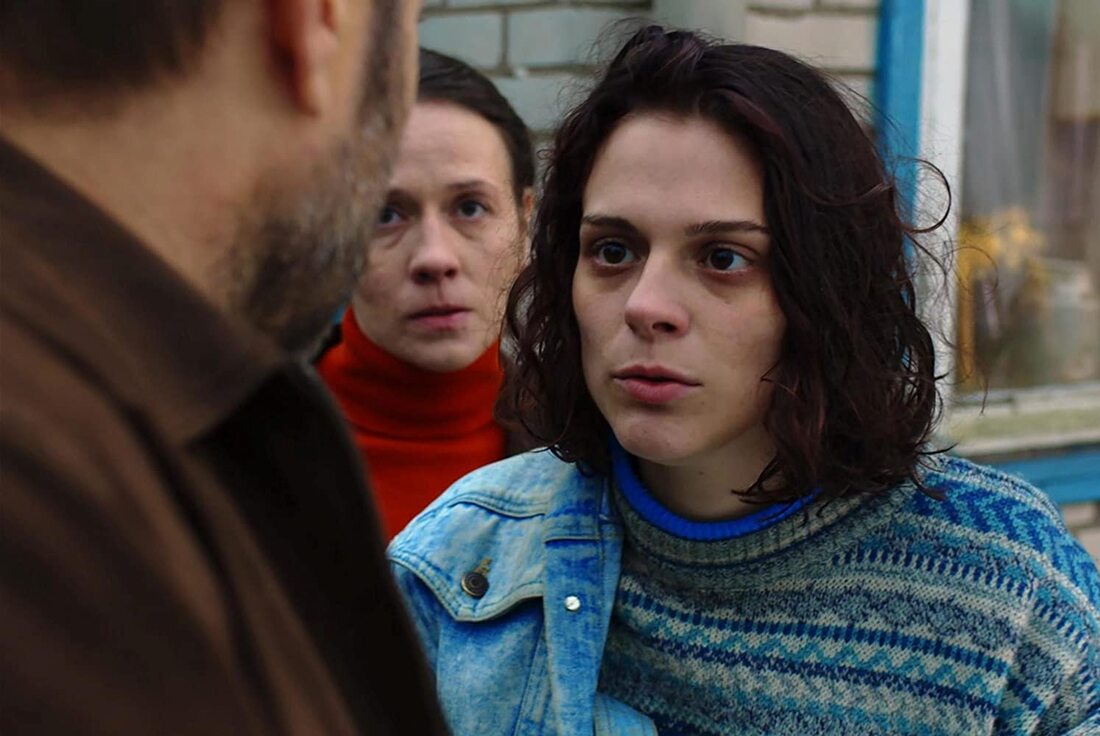|
Review by Sarah Williams
Before touching upon the rich text of Kantemir Balagov's debut feature Closeness, let's take a moment to touch upon the spectacular knitwear in this movie. There is truly unparalleled sweater quality here. The rest of the film is much less warm and fuzzy, following a Jewish family in the '80s, when their youngest son and his wife disappear. They are held for ransom, an amount high enough to close their business and force them to seek help from the surrounding community in hopes of return.
Stemming from a funding initiative by legendary Russian filmmaker Aleksandr Sukurov, it's an astonishing beginning for such a young filmmaker. It's the start of the weighty themes of fraught family and human connection in last year's Beanpole, only here the story is set within the confines of a strict Jewish community. Closeness has that same intimacy, veering tightly into the lives of its characters to watch their bonds break apart under stress. Strong performances flood the screen, particularly commendable is Darya Zhovner, who takes her heroine, Ila, and her refusal to marry to pay ransom to a higher level. Ila is denied a voice repeatedly, yet she persists, perhaps to see an end to her world surrounded by senseless violence and power struggle. Iya's tomboyish nature and her realistic consideration of debts owed to family make her an incredibly compelling protagonist, an entry point to an otherwise overbearing world. The film is shot with a warmth despite the coldness of the cruel world depicted, an emotional hotness as the camera lingers upon bodies wrapped in a desperate embrace, or upon the fabric of the characters' clothing as we're given respite from emotionally fraught faces. Color is key, especially in the final moments, though exactly how so would spoil the surprise.
The film has become somewhat notorious for a sequence utilizing real footage of Chechen rebels killing a soldier. This scene is essentially a setup for anti-Semitism of this society to be shown, but it feels irresponsible not to simulate such a small moment. Perhaps the footage is used to create conversation around the film's premiere, but it's distribution overseas has only come a couple years later after the success of Kantemir Balagov's follow-up Beanpole with international audiences. It's a major ethical lapse that detracts from an otherwise strong feature, a head-scratching moment as to why we would need to see a real life ended on-screen, even if the footage had other origins. Kantemir Balagov defends the use of a real hate-killing from an archive, claiming a simulation would not have the same emotional impact (though this impact has resulted in much backlash).
In Russian, the title does not translate directly. It is not a direct "closeness" that this word refers to, but a squeezing, cramped situation, a confinement of sorts. What the film does best is an emotional confinement, never letting the audience leave the headspace. It's a typical arthouse drama that takes the side of emotion over minimalism, something that would later be taken farther with Beanpole. Much of the latter's lingering intimacy, a love broken by the stress of a cold world, and the warmth found in capturing the light that reflects off of these acts is present here in prototype, though more unsure, but certainly no less accomplished. Closeness is now streaming in partnership with indie theaters. Rating: 4/5
0 Comments
Leave a Reply. |
Archives
May 2024
Authors
All
|
|
|
disappointment media
Dedicated to unique and diverse perspectives on cinema! |


